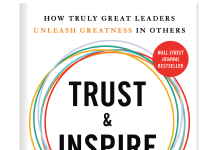While serving as cadre at the John F. Kennedy Special Warfare Center and School, I had a student named Riley Stephens. I didn’t like him. Personally and professionally, I saw nothing of value in him. I simply judged him harshly and felt very negatively about him. To my great relief, Staff Sergeant Stephens failed to meet the standards in training. My recommendation was NTR, or Never to Return. I felt so strong in my dislike for him that I couldn’t picture how he had made it as far in training as he did. I even felt as though my own Green Beret would have less value if he got one. He was stealing my oxygen, and the sound of his voice grated on my nerves.
Riley Stephens was gone! I was glad. I told him when he left that my own dad would be pissed if I passed someone who wouldn’t be able to save my bacon in combat. Apparently, he did well after that because he received strong recommendations to make it back into the Special Forces’ candidacy. It wouldn’t have been my place to raise an objection to this as I had left my instructor position to rejoin a combat unit.
This Stephens guy went all the way back through all that tough training again. This time, he passed. I found out because he was on the A-Team I later joined for the big mission during which I was wounded.
The real wakeup call with Riley Stephens came when I was lying wounded on the battlefield surrounded by some guys who couldn’t possibly save my life. They kept telling me to hang on, that the medic was on the way. Don’t get me wrong. I had some great and heroic help, but not the kind that could actually save my life in that condition. I was dying. They said, “Here he is, Stube!” Then I saw the medic running up to my feet with that big aid bag. It was Riley Stephens.
My pain was horrible, like nothing I’d ever imagined. The traumatic damage and burns were unbearable. Yet, when I saw Riley, these words came quickly: “No hard feelings, right, Stephens?”
His eyes were wide with concern and professionalism as he performed a rapid trauma assessment on me. It was clear he wanted so badly to save my life. It was also clear he wanted to prove to me he could do this now—when it counted. He could save my bacon. Riley hit all the marks of a flawless trauma medic. He stopped the hemorrhaging in multiple places. He dressed burns and so much more. He had become a better medic than I was, and, for the first time, I could feel pride in it. Before my own life was on the line, it would have been an insult to me that a student could be better than me. What an ego. Now I know it is necessary that we give everything we have to the next generation. If they are not better than us, then we are failing. Yet another example of how I needed this to get the chip off my shoulder.
Though I should have been long unconscious by that time, I had the blessing and the curse of being fully aware of everything happening. As an SF Medic, I was concerned with everything being done, and how. I remember feeling like I didn’t need to worry anymore. I saw he had firm command over my survivability. He and the good Lord both had hands on me that day.
My teammates carried me on the litter toward the medevac Blackhawk two hours after I’d been hit. To Kandahar I went, but, in my mind, it was to the unknown.
I saw Riley back at Fort Bragg a few months later, when I got a pass from the hospital to go home for a few days. When he stood before me, all I could do was cry. I was overwhelmed with gratitude and guilt. So grateful for how he had worked to save my life, and so guilty for the way I had judged him and cast him away. Also, I felt guilty that friends we shared had been killed, but I survived. Riley hated to see me broken like that, and he quickly wrote his name and number on a Post-it note to hand to me. He put his hand firmly on my shoulder and walked away. He was saving me from the embarrassment of crying, and it also seemed he had had a hard time dealing with it.
I put the note on my computer monitor at home and made firm plans to be in touch with him. Riley Stephens had gone from being a man I despised to someone on my permanent Christmas card list. I now wanted my son to know him and be mentored by the hero who had saved my life. But what was different about Riley now? Or was it me? The answer is that Riley had always had it in him to be that professional, warrior, and hero. The sad truth is I didn’t have it in me to overcome perceived differences and focus on absolute commonalities. God put this one right in my lap. Why hadn’t I mentored him when I caught negative indicators? Why had I kept him at arm’s length, salivating for the opportunity to fail him? This had been my failure, not his, and that wouldn’t be the last time I cried over it.
A couple years later, I still had not called him. I did not send a Christmas card. I had not taken my son to be around Riley Stephens. While I had been focused on myself, my recovery, and my new life after the military, Riley had been back in combat multiple times. I was still thinking of myself when the call came in that Riley had been killed in Afghanistan. The medic on scene could not save him. My considerations for building and maintaining a team changed in that moment. How could I have been, and stayed, so selfish?
I look back now and know that all of that highlights the secret to A-Team execution. There is a common bond that pulls an A-Team together. It is so strong that no one is irreplaceable. I was replaceable. Riley was there as junior medic. We’d foreseen and prepared for landmines and snipers. They knew how to get me out. The plan had been disrupted, but everyone shifted to take care of the problem as they were trained to do and then moved on with the plan. They were improvising, sure, but they weren’t totally off script because they had prepared for worst-case scenarios.
An A-Team doesn’t have a separate brain and a body. Every member can quickly and effectively communicate to alter the plan as needed. Special Forces are trained that way. Yes, there is a command structure, as there must be. But that doesn’t mean every part isn’t also thinking and helping the plan evolve as communication goes up and down the chain of command.
This is how an A-Team moves forward as a cohesive unit—many different parts making the whole, and all of them working together for the same defined mission and with the same established values. I think this is why free peoples produce greater armies. We are used to thinking for ourselves. When we also learn to respect orders and our leadership, we become the best we can be. We become thinking parts of the whole. We share our ideas and what we see up and down the chain of command because we are all respected parts of the team. As professionals, we know what to share or to bother the team with and what to keep to ourselves. We know when to keep our mouths shut, but we also aren’t afraid to speak up. That’s a hard dichotomy for many to understand—and it might be impossible for someone from an authoritarian state to comprehend. America fosters inquisitive, creative minds; when these men and women also find the discipline to use their creativity and free spirits, they can be almost unstoppable. The key to team leadership and execution is fostering and funneling that leadership into a chosen direction, according to a plan. This is why, often, great leadership means getting out of the way.
This is the type of structure, of respect for each other and for leadership, that Green Beret A-Teams exemplify. I think this is also how successful sports and business teams function.
Excerpt from Conquer Anything—A Green Beret’s Guide to Building Your A-Team by Greg Stube.
SFC Gregory A. Stube (ret.) is from Covington, TN. He spent 19 of his 23 years in the U.S. Army as a member of the Green Berets. He was seriously wounded during Operation Medusa in Afghanistan, September 2006. Physicians called him a “miracle” for having survived and recovered so well. He credits his A-Team and his faith with his survival and recovery. He then became the Green Beret’s first official spokesperson and since has moved on to leadership training, teambuilding, and speaking about leadership and character.




